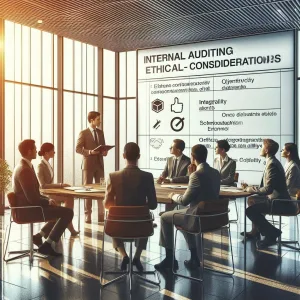Introduction to CPA Exam Expiration
The CPA (Certified Public Accountant) Exam is a critical step for professionals aspiring to achieve CPA licensure. However, the journey does not end with passing the exam; candidates must also be aware of the expiration of their CPA Exam credits. CPA exam expiration refers to the time limit within which candidates must apply for their CPA license after passing the exam sections. If this timeframe elapses, candidates may lose their credits, necessitating retaking the exam, which can be both time-consuming and costly. This is particularly relevant for internal auditors, as maintaining CPA status is essential for compliance and credibility within the profession.
For internal audit professionals, the implications of CPA exam expiration are significant. The internal audit field demands a high level of expertise and adherence to regulatory standards. A valid CPA license not only enhances an auditor’s qualifications but also reinforces their credibility with stakeholders, including management and external auditors. Maintaining CPA status is crucial for internal auditors to ensure they are up-to-date with the latest accounting standards, regulations, and best practices, which are vital for effective risk management and compliance.
In this blog, we will explore practical strategies for managing CPA exam expiration effectively. We will discuss how internal audit professionals can stay informed about their CPA status, the importance of continuous professional education, and proactive planning to avoid lapsing credits. By implementing these strategies, internal auditors can ensure they remain compliant and relevant in a rapidly evolving regulatory landscape, ultimately enhancing their professional standing and the effectiveness of their audit functions.
Understanding CPA Exam Requirements
For internal audit professionals and managers, understanding the requirements and timelines associated with the CPA exam is crucial for maintaining compliance and relevance in the field. Here are the key points to consider:
General Requirements to Become a CPA
To become a Certified Public Accountant (CPA), candidates must meet several essential requirements:
- Education: Most states require candidates to have at least a bachelor’s degree with a concentration in accounting or a related field. This typically includes a minimum number of credit hours in accounting and business courses.
- Experience: Candidates are often required to gain relevant work experience under the supervision of a licensed CPA. This experience can vary by state but generally includes a specific number of hours in auditing, tax, or consulting services.
- Examination: Candidates must pass the CPA Exam, which consists of four sections: Auditing and Attestation (AUD), Financial Accounting and Reporting (FAR), Regulation (REG), and Business Environment and Concepts (BEC). Each section tests different competencies essential for a CPA’s role [6][14].
Validity Period of CPA Exam Scores
The CPA exam scores have a specific validity period, which is typically 18 months from the date of passing a section. This means that candidates must pass all four sections within this timeframe; otherwise, previously passed sections will expire. The expiration of scores can create significant challenges for candidates, as they may need to retake sections to fulfill the requirements for licensure [5].
- Consequences of Expiration: If a candidate fails to pass all sections within the 18-month window, they will lose credit for the sections passed first, which can lead to additional time and resources spent on retaking exams. This can be particularly stressful for professionals balancing work and study commitments [11].
State-Specific Regulations
It’s important to note that CPA exam requirements and expiration rules can vary significantly by state. Some states may have different timelines for score validity or additional requirements for licensure. For instance:
- CPE Requirements: Many states require CPAs to complete Continuing Professional Education (CPE) credits annually or biennially to maintain their license. The number of required credits can differ, with some states mandating 40 CPE credits annually, while others may require 80 credits within two years [8].
- Grace Periods and Extensions: Some states offer grace periods or extensions for CPAs facing extenuating circumstances, but these typically require proper justification and adherence to specific guidelines [15].
By understanding these requirements and timelines, internal audit professionals can better manage their CPA compliance and ensure they remain relevant in their field. Implementing practical strategies, such as tracking exam dates and maintaining a study schedule, can help mitigate the risks associated with CPA exam expiration.
Best Practices for Monitoring CPA Status
Managing CPA exam expiration is crucial for internal audit professionals to maintain compliance and relevance in their field. Here are some practical strategies to help you proactively manage your CPA status:
- Utilize Tracking Tools and Resources: Leverage digital tools and resources designed to track CPA exam score expiration dates. Many organizations offer platforms that allow you to input your exam dates and automatically calculate expiration timelines. Additionally, consider using spreadsheet applications or project management tools to create a personalized tracking system that includes all relevant dates and requirements.
- Set Reminders and Alerts: To avoid missing critical deadlines, set up reminders and alerts for upcoming expiration dates. Use calendar applications to create notifications that will prompt you well in advance of any deadlines. This proactive approach ensures that you have ample time to complete any necessary steps to maintain your CPA status, such as retaking exams or fulfilling continuing education requirements.
- Conduct Regular Self-Assessments: Regularly assess your ongoing continuing education requirements to ensure you are meeting the necessary standards for CPA compliance. Create a schedule for reviewing your education credits and identify any gaps that need to be addressed. This self-assessment can help you stay informed about the latest requirements and trends in the internal audit profession, ensuring that your skills and knowledge remain relevant.
By implementing these best practices, internal audit professionals can effectively manage their CPA status, ensuring compliance and enhancing their professional credibility in the field.
Continuing Professional Education (CPE) Strategies
For internal audit professionals, maintaining CPA compliance and relevance is crucial, especially in light of the evolving landscape of the profession. Continuing Professional Education (CPE) plays a vital role in this process. Here are some effective strategies for managing CPE requirements and enhancing professional relevance.
CPE Requirements for CPAs
CPAs are required to complete a minimum of 80 hours of CPE over a rolling two-year period, starting from the date of license issuance. This requirement is designed to ensure that CPAs remain competent in their field and are equipped to provide quality services to the public [6]. Specifically for internal auditors, it is essential to focus on CPE activities that enhance knowledge and skills relevant to their roles, particularly in areas such as regulatory compliance, risk management, and ethical standards [11].
Additionally, CPAs must complete at least 50 CPE minutes annually in activities focused on regulatory or behavioral professional ethics and conduct [5]. This is particularly relevant for internal auditors, who must navigate complex ethical landscapes in their work.
CPE Options for Internal Audit Professionals
To meet CPE requirements effectively, internal audit practitioners can explore a variety of educational opportunities:
- Webinars: These online sessions offer flexibility and can cover a wide range of topics relevant to internal auditing, including emerging risks and best practices in audit methodologies. They are often led by industry experts and can be attended from anywhere.
- Workshops: In-person or virtual workshops provide hands-on learning experiences. These sessions often focus on specific skills or tools that are directly applicable to internal audit functions, such as data analytics or fraud detection techniques.
- Conferences: Attending industry conferences not only provides CPE credits but also exposes professionals to the latest trends and innovations in internal auditing. Conferences often feature keynote speakers, panel discussions, and networking opportunities that can enhance professional knowledge and connections.
Networking for CPE Opportunities
Networking with peers is an invaluable strategy for internal audit professionals. Engaging with colleagues can lead to the discovery of various CPE opportunities, including:
- Sharing Resources: Internal auditors can exchange information about upcoming webinars, workshops, and conferences that they have found beneficial. This collaborative approach can help professionals stay informed about the best CPE options available.
- Building Relationships: Establishing connections with other internal audit professionals can lead to mentorship opportunities and collaborative learning experiences. These relationships can also provide insights into how others are managing their CPE requirements effectively.
- Participating in Professional Organizations: Joining organizations such as the Institute of Internal Auditors (IIA) can provide access to exclusive CPE resources, including specialized training sessions and networking events tailored to internal audit practitioners.
By implementing these CPE strategies, internal audit professionals can ensure they remain compliant with CPA requirements while also enhancing their professional relevance in a rapidly changing environment. This proactive approach not only benefits individual careers but also contributes to the overall integrity and effectiveness of the internal audit function.
Leveraging Technology for CPA Compliance
In the ever-evolving landscape of internal audit, maintaining CPA compliance is crucial for professionals aiming to uphold their credentials and relevance in the field. As the CPA exam expiration policies and continuing professional education (CPE) requirements become more complex, leveraging technology can provide significant advantages. Here are some practical strategies and tools that can aid internal audit professionals in managing CPA compliance efficiently.
Software and Apps for Tracking CPE Hours and CPA Status
Utilizing dedicated software and applications can streamline the process of tracking CPE hours and monitoring CPA status. These tools often come equipped with features that allow users to:
- Automate Tracking: Many applications automatically log CPE hours as they are completed, reducing the risk of human error and ensuring that professionals stay on top of their requirements.
- Set Reminders: Users can set alerts for upcoming deadlines related to CPE submissions or CPA renewals, helping to avoid last-minute scrambles.
- Generate Reports: These tools can generate detailed reports of completed CPE activities, making it easier to present compliance documentation during audits or reviews.
By integrating these technologies into their workflow, internal audit professionals can ensure they remain compliant with CPA requirements while focusing on their core responsibilities.
Role of Online Learning Platforms in Fulfilling CPE Requirements
Online learning platforms have revolutionized the way professionals can fulfill their CPE requirements. These platforms offer a variety of courses that are not only convenient but also tailored to the specific needs of internal auditors. Key benefits include:
- Flexibility: Professionals can access courses at their convenience, allowing them to balance their learning with work commitments.
- Diverse Learning Options: From webinars to interactive courses, online platforms provide a range of formats that cater to different learning styles, ensuring that auditors can engage with the material effectively.
- Up-to-Date Content: Many online learning providers regularly update their course offerings to reflect the latest industry standards and regulations, ensuring that auditors are learning relevant and timely information.
By taking advantage of these platforms, internal audit professionals can efficiently meet their CPE requirements while enhancing their knowledge and skills.
Importance of Data Security and Privacy in Managing Professional Credentials
As technology plays a larger role in managing CPA compliance, it is essential to prioritize data security and privacy. Internal audit professionals must be vigilant about protecting their personal and professional information. Consider the following practices:
- Choose Reputable Software: When selecting tracking software or online learning platforms, ensure they have robust security measures in place, such as encryption and secure data storage.
- Regularly Update Passwords: Implement strong password policies and change passwords regularly to protect accounts from unauthorized access.
- Monitor Account Activity: Regularly review account activity for any suspicious behavior, and report any anomalies immediately.
By prioritizing data security, internal audit professionals can safeguard their credentials and maintain compliance without compromising their personal information.
Leveraging technology effectively can significantly enhance the management of CPA compliance for internal audit professionals. By utilizing tracking software, engaging with online learning platforms, and prioritizing data security, auditors can ensure they remain compliant and relevant in their field.
Creating a Personal Development Plan
In the field of internal audit, maintaining CPA compliance is crucial not only for professional credibility but also for career advancement. A well-structured personal development plan can serve as a roadmap for internal audit professionals to navigate the complexities of CPA exam expiration and continuing professional education (CPE) requirements. Here are some practical strategies to help you create an effective personal development plan:
1. Establish Clear CPA Maintenance and CPE Goals
- Identify Requirements: Begin by understanding the specific CPE requirements necessary for maintaining your CPA license. This includes the number of hours required and the types of courses that qualify.
- Set Achievable Targets: Break down your CPE requirements into manageable goals. For instance, aim to complete a certain number of CPE hours each quarter, ensuring that you stay on track throughout the year. This structured approach can prevent last-minute scrambles to meet renewal deadlines.
2. Integrate CPA Compliance into Performance Reviews
- Regular Check-Ins: Incorporate discussions about CPA compliance and CPE progress into your regular performance reviews. This not only keeps compliance at the forefront but also demonstrates your commitment to professional development to your supervisors.
- Career Progression Discussions: Use these reviews as an opportunity to discuss how your CPA status and ongoing education align with your career aspirations. This can help you identify potential advancement opportunities within your organization.
3. Leverage a Structured Plan for Career Growth
- Document Your Progress: Keep a detailed record of your completed CPE activities and any relevant certifications. This documentation can be invaluable during performance evaluations and when seeking promotions.
- Seek Mentorship: Engage with mentors who can provide guidance on navigating CPA requirements and share their experiences in leveraging compliance for career advancement. Their insights can help you refine your personal development plan and identify additional growth opportunities.
By creating a personal development plan that emphasizes CPA maintenance and CPE goals, internal audit professionals can not only ensure compliance but also position themselves for greater career opportunities and professional growth. This structured approach fosters a culture of continuous learning and development, essential for thriving in the dynamic field of internal audit.
Navigating CPA Exam Re-qualification
For internal audit professionals, maintaining CPA compliance is crucial not only for personal career advancement but also for upholding the credibility of the audit function within their organizations. If your CPA exam has expired, understanding the re-qualification process is essential. Here are some practical strategies to help you navigate this situation effectively.
Process and Requirements for Re-qualifying After CPA Exam Expiration
- Understand the Expiration Policy: The CPA Exam has specific expiration policies that vary by state. Generally, if you do not pass all four sections of the CPA Exam within an 18-month window, your scores may expire, requiring you to retake the sections you did not pass. Familiarize yourself with your state’s specific rules regarding expiration and re-qualification.
- Application for Re-examination: Once you determine that your exam has expired, you will need to reapply for the CPA Exam. This involves submitting a new application to the state board of accountancy, along with any required fees. Ensure that you have all necessary documentation ready, including proof of education and previous exam scores [11].
- Review Continuing Education Requirements: Many states require CPAs to complete continuing professional education (CPE) credits to maintain their license. Check if you need to fulfill any additional CPE requirements before re-qualifying [11].
Impact of Re-qualification on Career and Professional Credibility
Career Advancement: Failing to maintain your CPA status can hinder career progression. Many organizations prefer or require their internal audit professionals to hold an active CPA license. Re-qualifying can open doors to new opportunities and promotions within your organization or in the job market [11].
Professional Credibility: An expired CPA license can affect your professional reputation. Clients and employers may question your commitment to the profession and your expertise. By successfully re-qualifying, you reinforce your dedication to maintaining high professional standards and staying current in the field.
Tips for Preparing Effectively for Retaking the CPA Exam
Create a Study Plan: Develop a structured study schedule that allocates time for each section of the CPA Exam. Break down the material into manageable segments and set specific goals for each study session [12].
Utilize Quality Study Materials: Invest in reputable CPA review courses and study materials that align with the current exam format. These resources often provide practice questions, simulations, and tips tailored to the CPA Exam.
Join Study Groups: Collaborating with peers can enhance your understanding of complex topics. Consider joining a study group or online forum where you can share insights, ask questions, and motivate each other.
Practice Time Management: During your preparation, practice answering questions under timed conditions to simulate the exam environment. This will help you manage your time effectively during the actual exam.
Stay Informed About Exam Changes: The CPA Exam is subject to updates and changes, including the recent CPA Evolution initiative. Stay informed about any modifications to the exam structure or content to ensure your preparation is relevant [15].
By following these strategies, internal audit professionals can effectively manage the re-qualification process after CPA exam expiration, ensuring they remain compliant and credible in their roles.
Conclusion
Maintaining CPA status is crucial for internal audit professionals, as it not only enhances credibility but also ensures compliance with industry standards. The CPA designation signifies a commitment to ongoing education and ethical practices, which are essential in the ever-evolving landscape of internal auditing. As such, it is imperative for professionals in this field to actively manage their CPA compliance to avoid expiration of their exam credits and maintain their qualifications.
To effectively manage CPA compliance, we encourage readers to implement the best practices discussed throughout this blog. These strategies include:
- Staying Informed: Regularly check for updates on CPA Exam policies and requirements, as these can change frequently. Understanding the transition policies, especially with the upcoming changes in 2024, is vital for planning your exam schedule and ensuring that your credits remain valid [11].
- Time Management: Develop a structured study plan that allows for adequate preparation time before the exam. This includes marking challenging questions for later review during practice tests, which can help improve performance and confidence [7].
- Utilizing Resources: Leverage available resources such as practice aids and comprehensive guides to enhance your understanding of the CPA Exam content and requirements [2][9].
- Networking and Feedback: Engage with peers and mentors in the internal audit community to share experiences and strategies for managing CPA compliance. This can provide valuable insights and support as you navigate your CPA journey.
We invite our readers to share their own experiences and strategies regarding CPA management. Your feedback is invaluable and can help foster a community of support among internal audit professionals striving to maintain their CPA status. By proactively managing CPA compliance, we can ensure that we remain relevant and effective in our roles, ultimately contributing to the integrity and success of our organizations.
Find out more about Shaun Stoltz https://www.shaunstoltz.com/about/
This post was written by an AI and reviewed/edited by a human.



